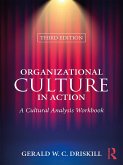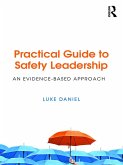Aimed at senior HRM and L&D specialists responsible for improving their organisation's managerial talent, the book covers the core findings of the author's and other published research. It provides a highly participative overview of personality and ability psychometrics, involving the opportunity for self-application. It reveals hard evidence of the extent to which such tests can add value to the prediction of managerial success and their link to requisite competencies. It shows how qualified testers, HR and line managers can each make a unique contribution to the selection process.
Dieser Download kann aus rechtlichen Gründen nur mit Rechnungsadresse in A, B, BG, CY, CZ, D, DK, EW, E, FIN, F, GR, HR, H, IRL, I, LT, L, LR, M, NL, PL, P, R, S, SLO, SK ausgeliefert werden.









